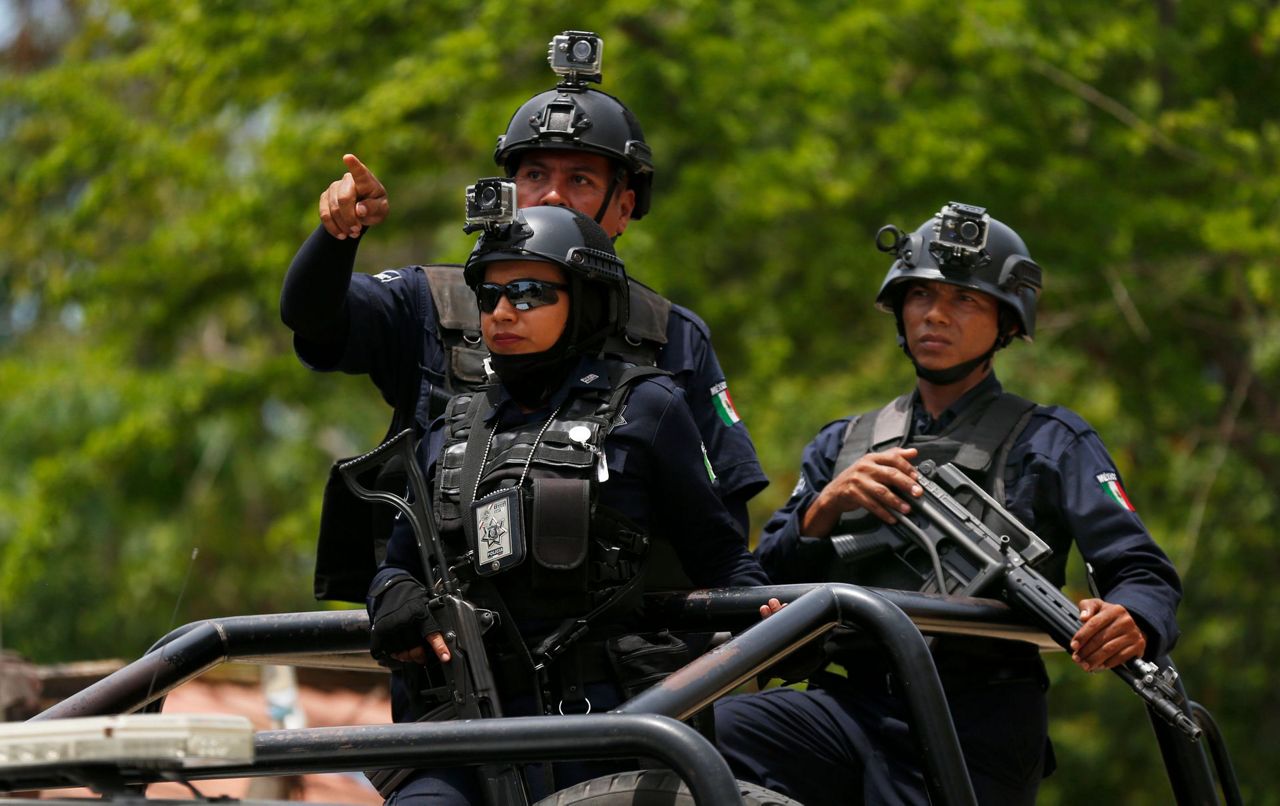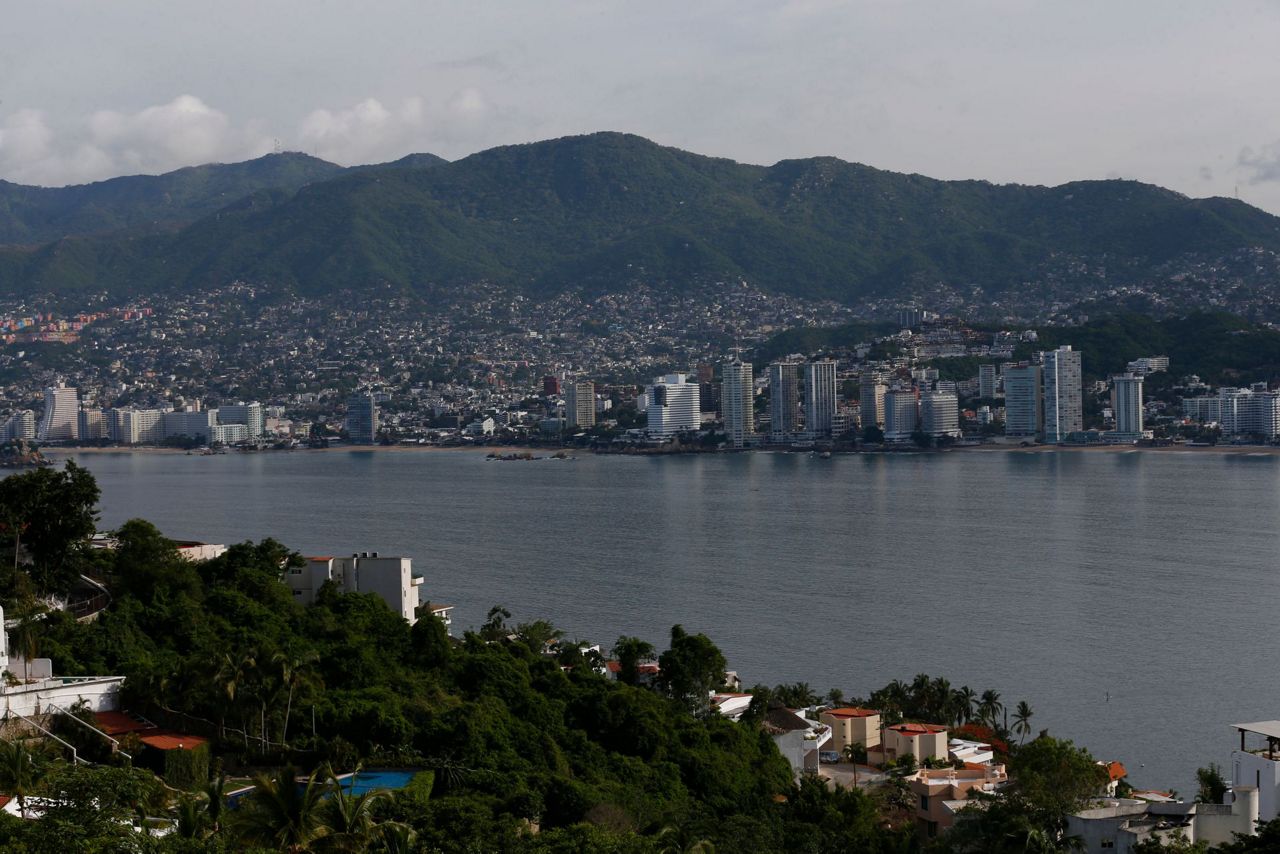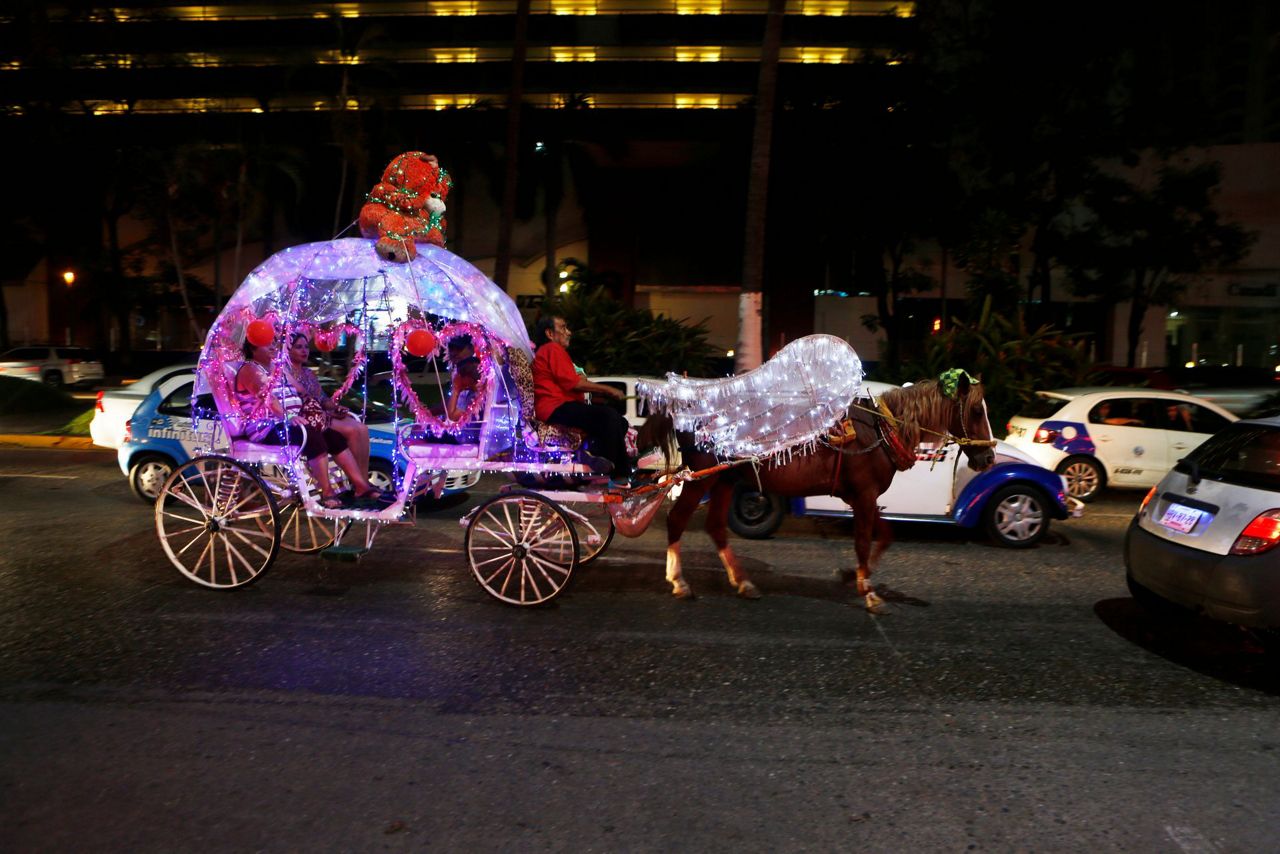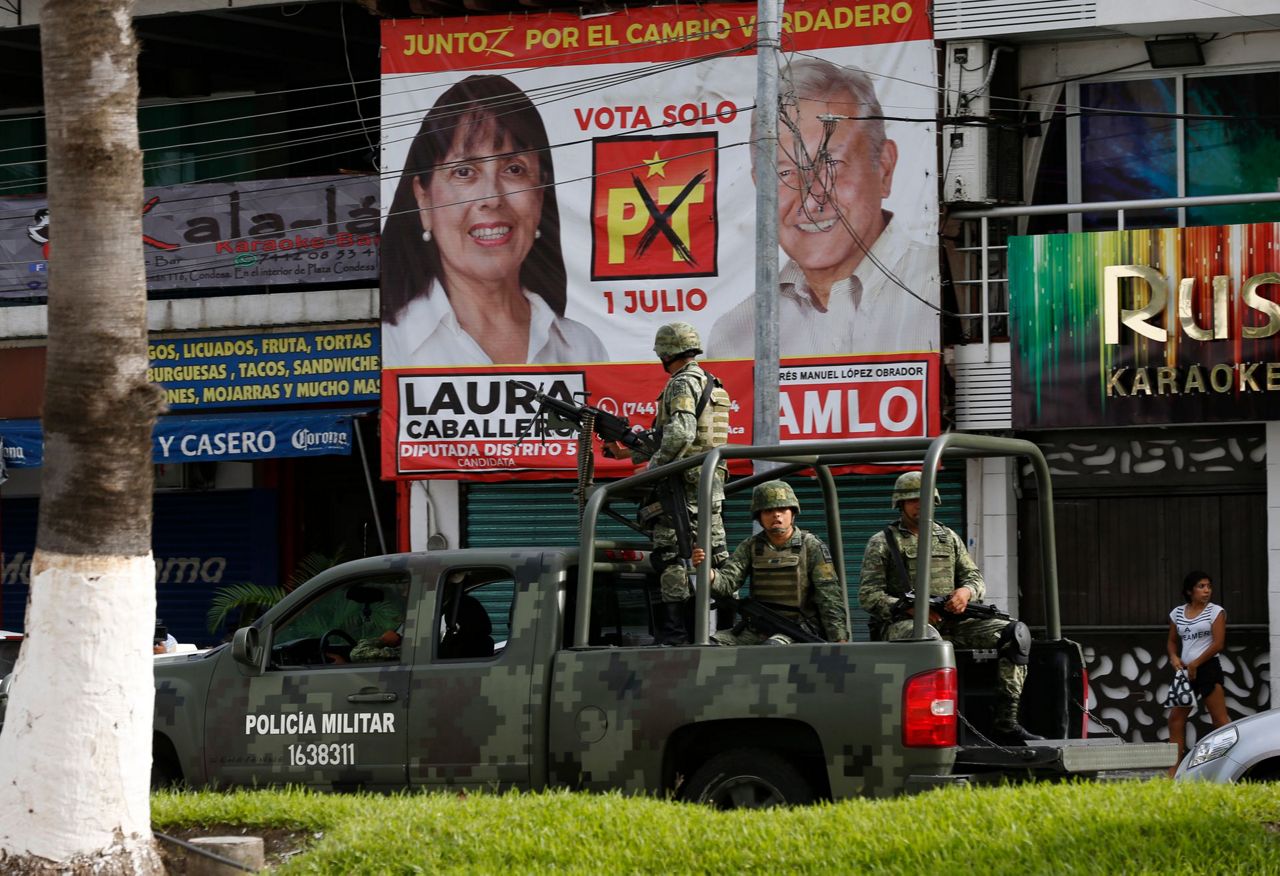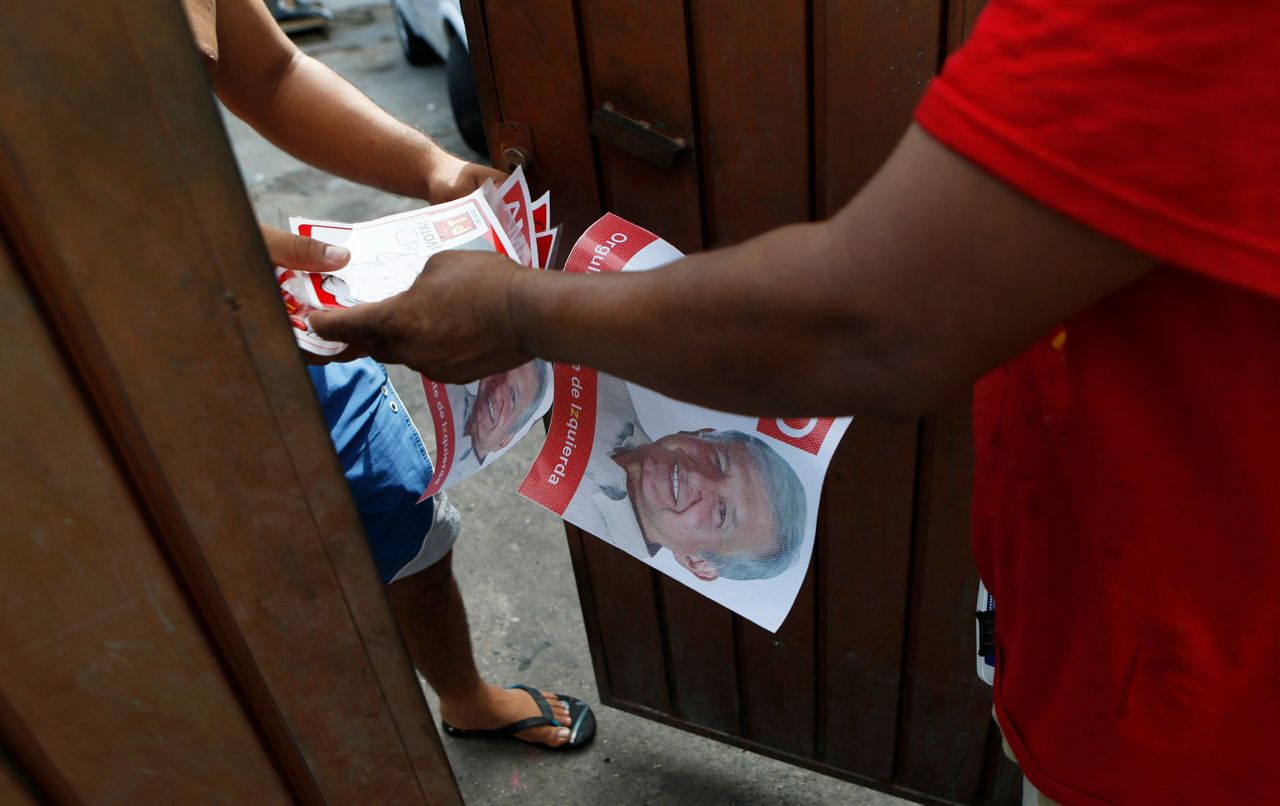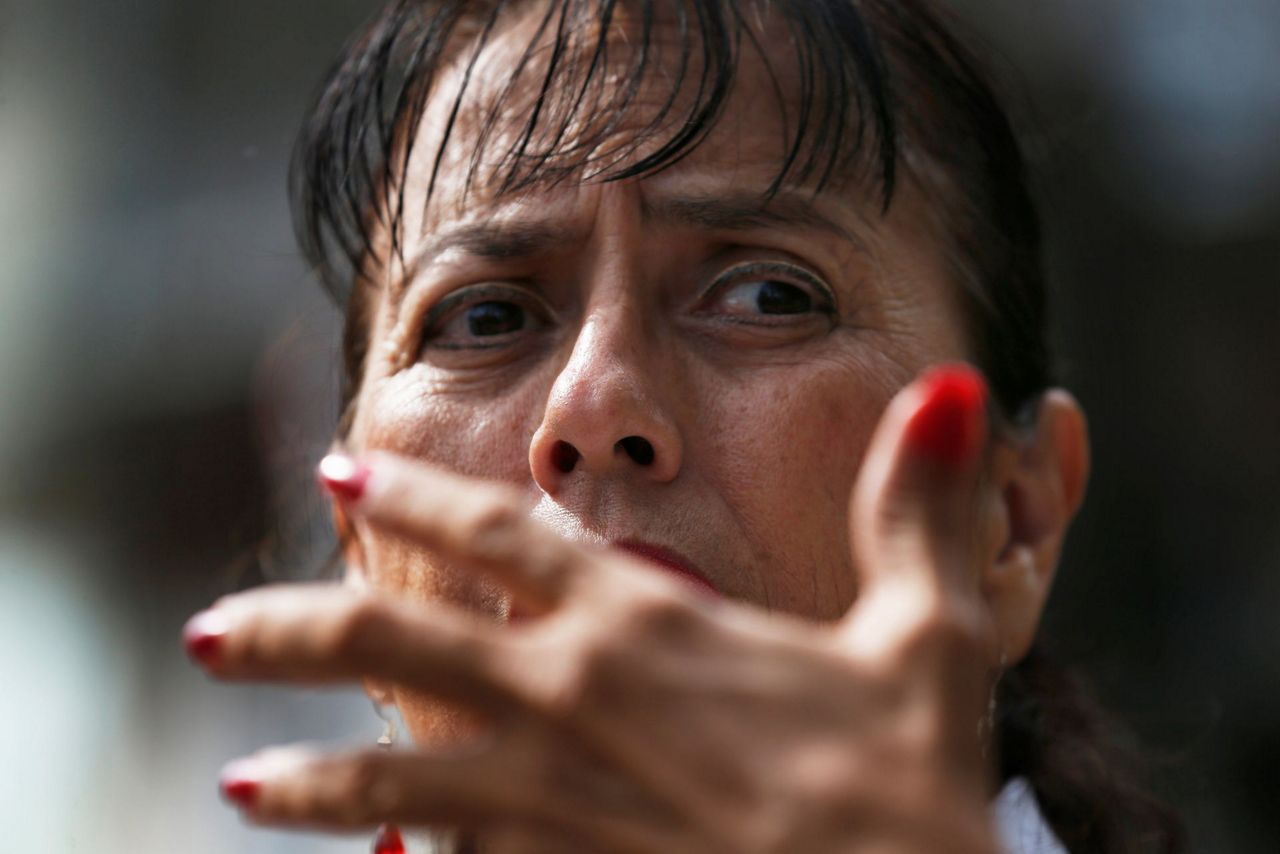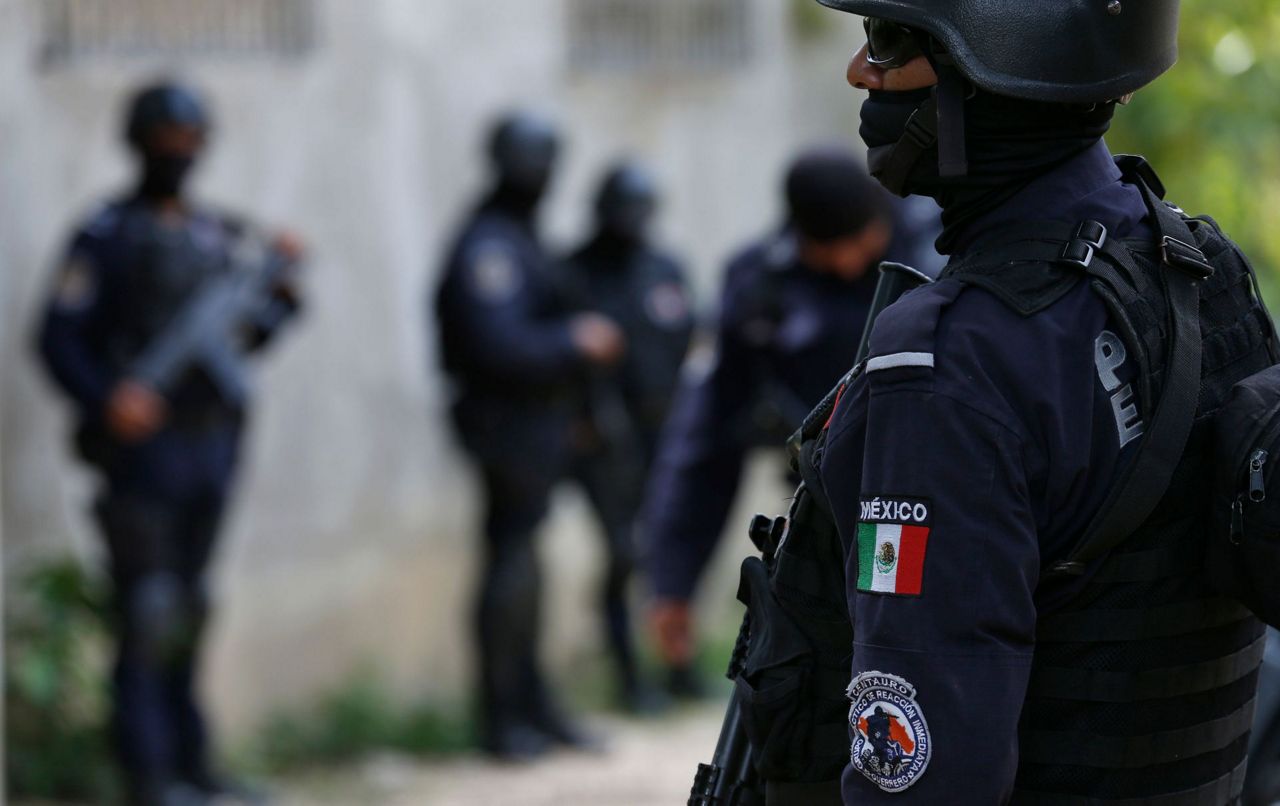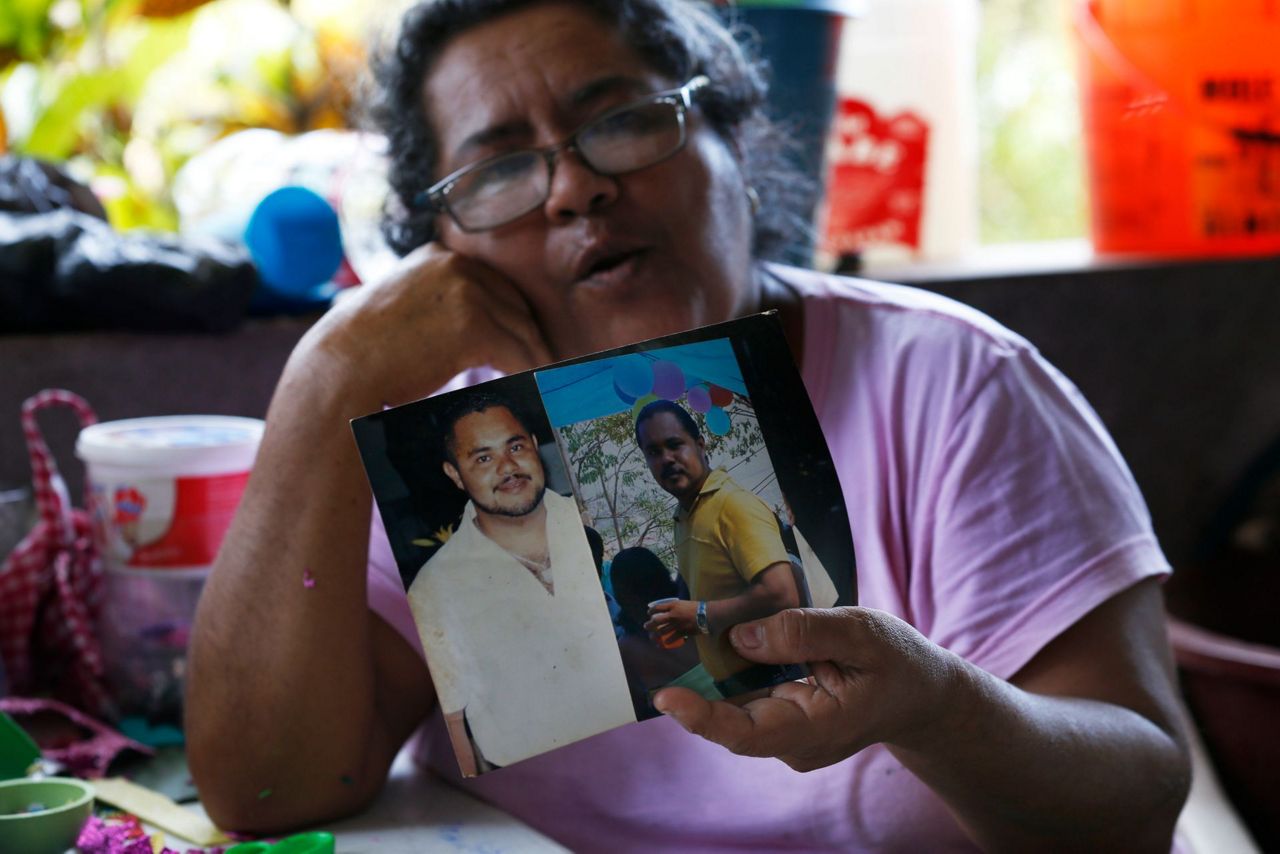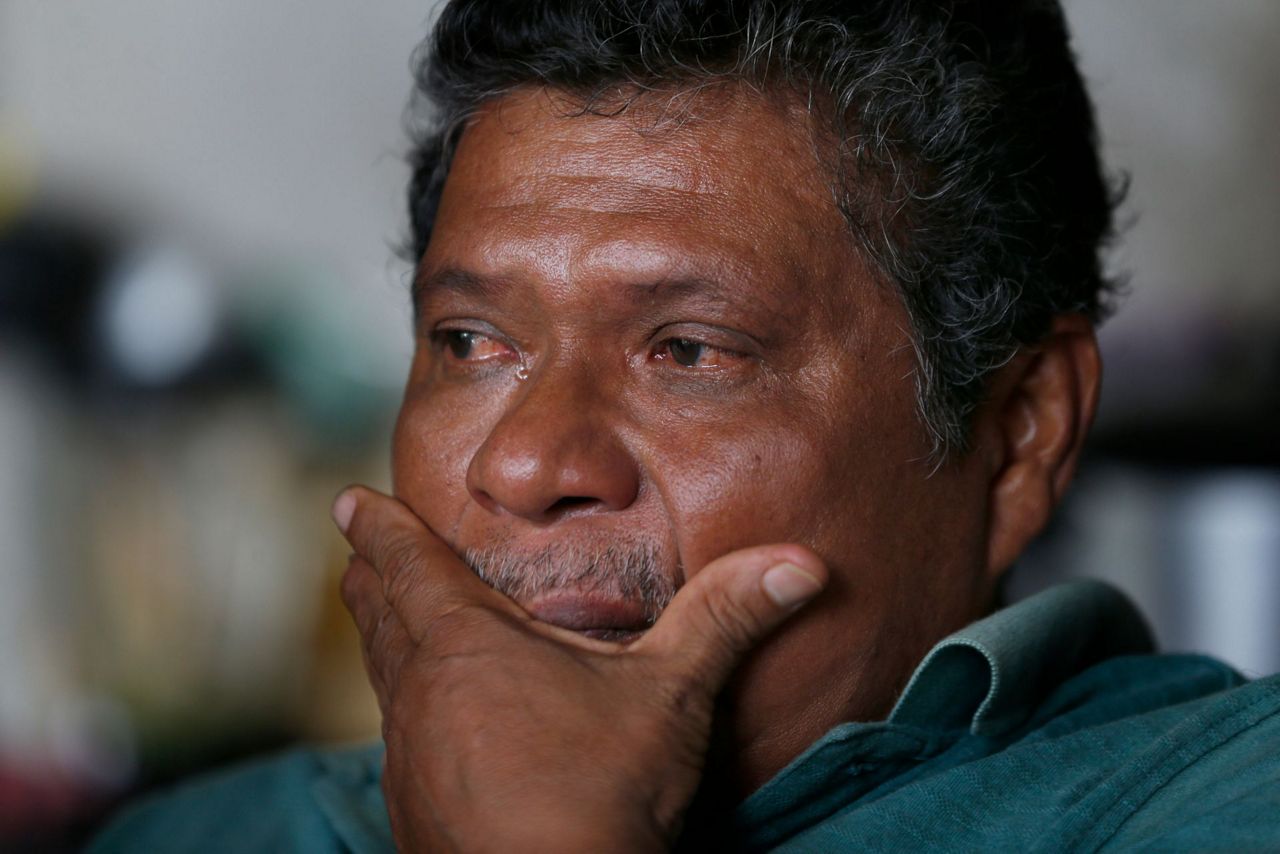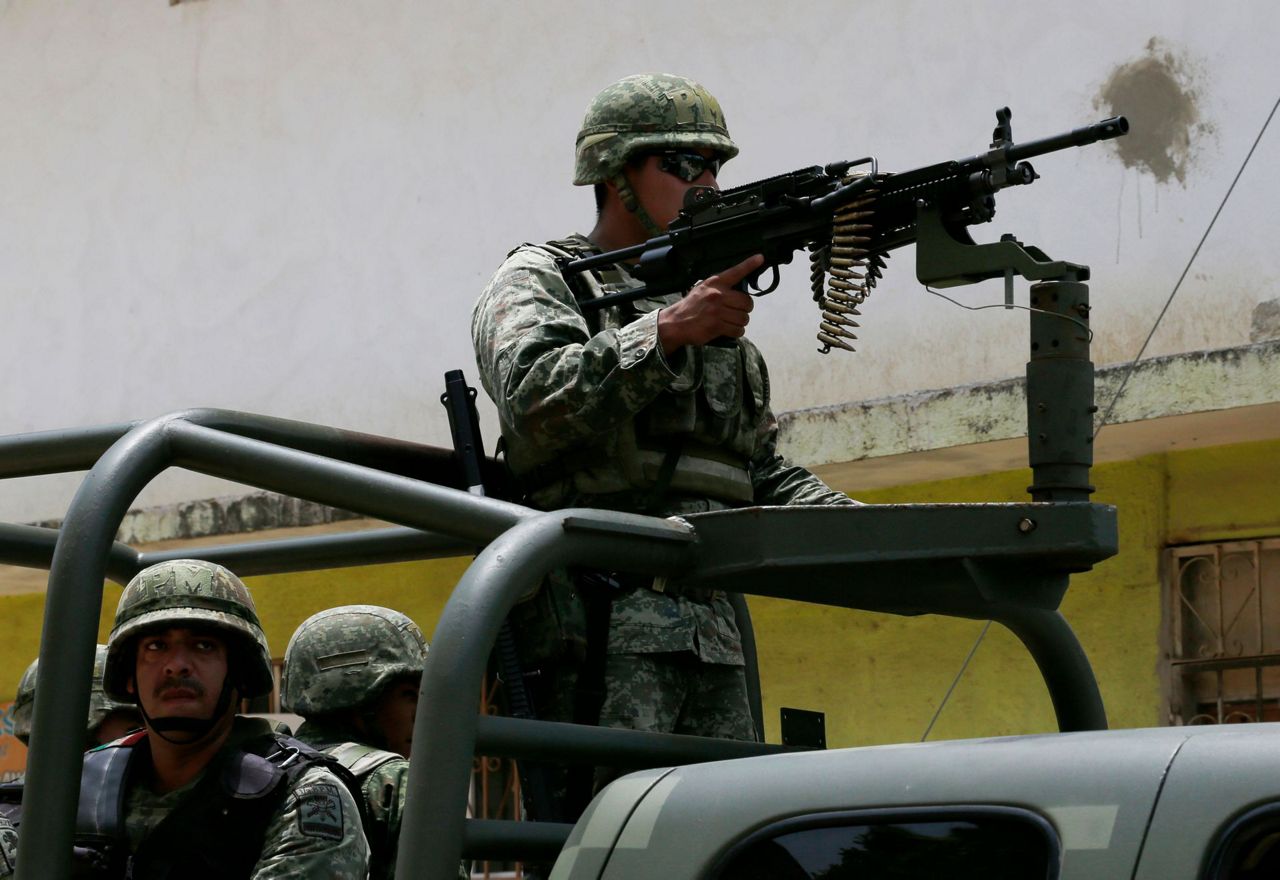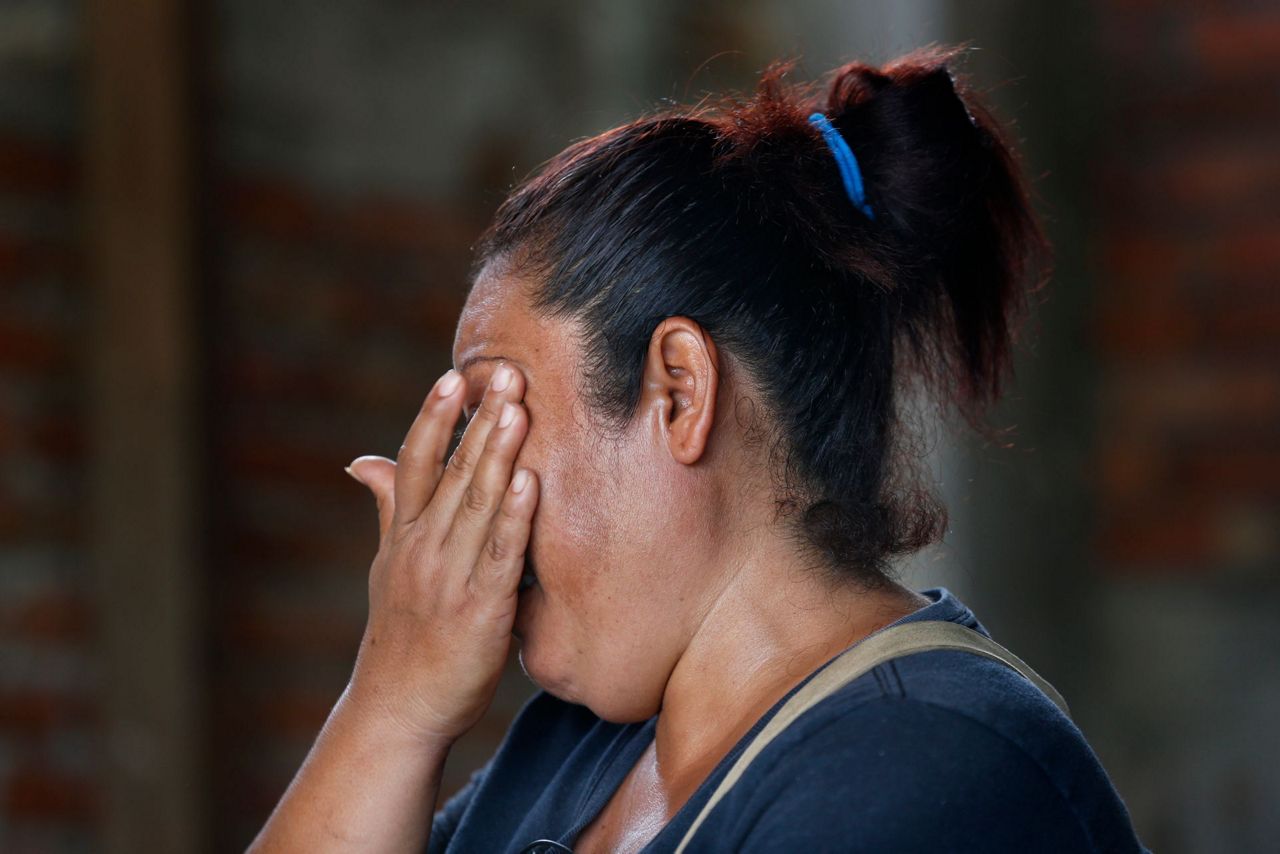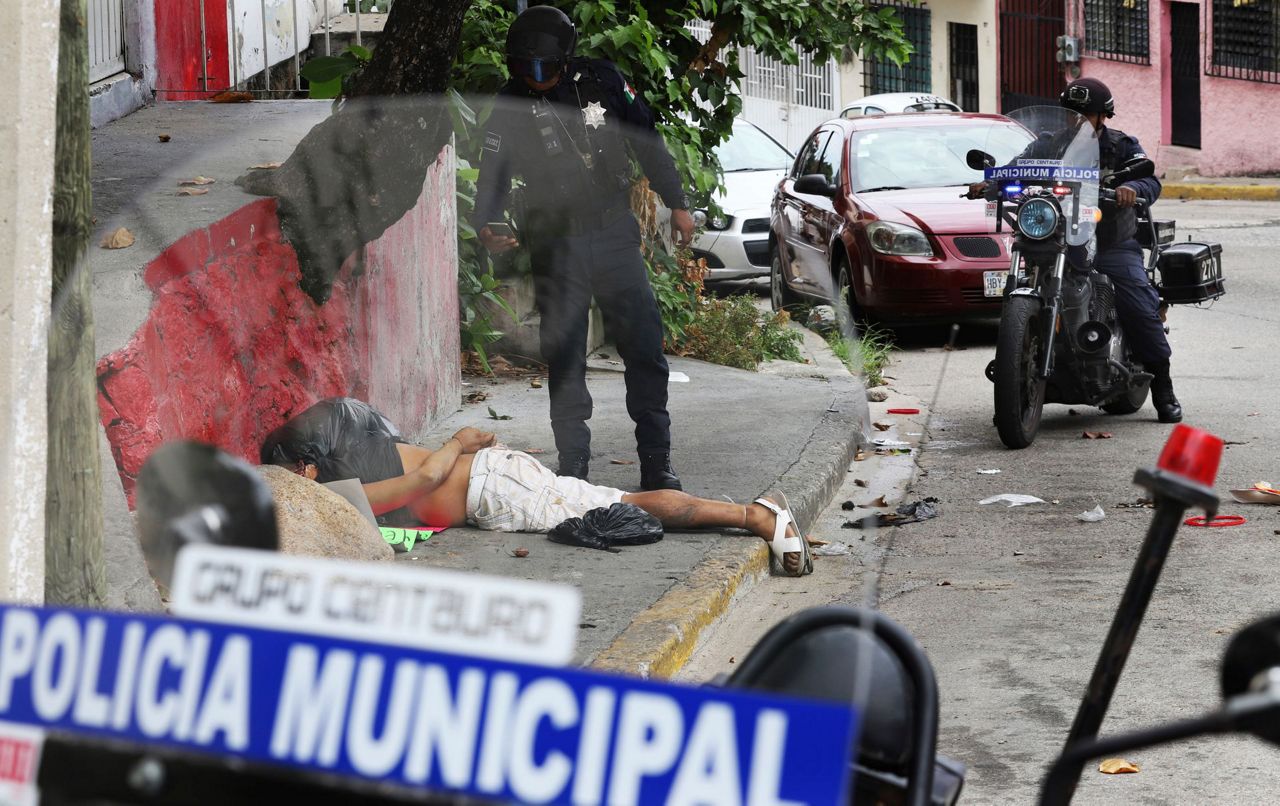ACAPULCO, Mexico (AP) — Dominga Garcia Lopez's only son, Francisco Ramirez Garcia, had nearly completed a master's degree in psychology, and at 36 was supporting the parents who had toiled to give him every opportunity to escape their hillside poverty above this famed Pacific resort.
Elisa Ceballos Santiago's son, 19-year-old Arturo Rios Ceballos, who she called her "only hope," was in his first year of university here studying electromechanics.
Both were murdered. One family saw silence as the only option to protect itself. The other demanded justice and as a result faced threats that forced it to abandon its home and business.
That limited set of options reveals just how much things have unraveled in parts of Mexico in the final year of President Enrique Pena Nieto's administration. Citizens have little confidence that the government will protect them or provide justice.
Mexico is on track to finish 2018 with around 30,000 homicides, which would be the country's deadliest year in at least two decades, and on Sunday voters will elect a new president who will inherit the problem. But none of the four candidates has laid out a detailed strategy to fix a problem that two consecutive administrations have failed to solve.
Nowhere in Mexico is the gangland violence starker than Acapulco, known as a playground of Hollywood stars for much of last century. But the city has been in a downward spiral of violence, especially since 2006, when then President Felipe Calderon launched a military offensive against drug cartels and violence began rising in the country.
Last year authorities opened investigations into 834 killings in Acapulco and 2,530 in all of Guerrero state. It is the same state where 43 students from a teacher college disappeared in 2014 in a still unsolved case in which local officials, police and possibly the military have been implicated.
"It has changed the lives of a lot of people in the state," said Garcia's husband, Francisco Ramirez Valente.
Their son, known by everyone as Paco, was shot in December, his body found in an unmarked grave with three others two weeks after he disappeared.
His parents never pressed for an investigation, never asked who was responsible. Paco was not involved in criminal activity, they said, but was a hardworking university administrator who had volunteered working with at-risk youth around the state.
Paco's bank account was cleaned out, so Garcia speculates it was a robbery — he had just received his holiday bonus. But asking too many questions can be dangerous, and the safety of other children and grandchildren had to be considered.
"What I wanted was my son's body. It was given to me," Garcia said, counting herself fortunate to avoid the misery of thousands of families whose loved ones simply vanish.
Garcia said the tough crackdown on crime has only yielded more bloodshed. "There has to be someone who brings peace. There should be dialogue so that there can be reconciliation."
That perspective aligns most closely with presidential front-runner Andres Manuel Lopez Obrador, a leftist who has proposed amnesty for some criminals and social solutions rather than the war on drugs.
A sticker for Lopez Obrador's Morena party adorns the family's new steel door, which they put in after Paco's killing to replace the curtain that was there before.
On a recent afternoon, Laura Caballero, a candidate for the Guerrero state legislature from the Labor Party, which is allied with Morena, spoke with residents in the steep, narrow streets of Garcia's neighborhood.
Three years ago Caballero, who has had businesses in Acapulco for more than 40 years, closed her restaurant on the city's main drag due to criminal extortion demands. Last week, a man being chased down the street ducked into a business next to her shuttered restaurant and was shot by his pursuers.
Caballero bristles at the militarized response to crime in Acapulco, where marines patrol the beach district in trucks mounted with machine guns while military police in full battle gear patrol on foot amid tourists in flip-flops.
"This is a war that cannot be fought with war," she said, arguing that the crime wave is a social problem that must be addressed with more opportunities for youth, more emphasis on sports, more scholarships.
A decade ago, it would have been unthinkable, but Caballero now speaks openly of negotiating a peace pact with organized crime to limit the bloodshed. "Let us live in peace," she said, adding: "The circumstances have forced us."
Edgardo Buscaglia, an international organized crime expert and research fellow at Columbia University, called that an outmoded approach from when the ruling Institutional Revolutionary Party controlled territory through such alliances.
"The future of Mexico is it must get closer to Colombia, to Italy, the best practices of countries that have managed to control the situation though judicial institutions," Buscaglia said.
"One (candidate) is talking about amnesty, the other is talking about cutting off peoples' hands," he added, the latter a reference to Jaime "El Bronco" Rodriguez, who is currently a distant fourth in polls and proposed the draconian measure during a debate.
The next day a dismembered body was found on the street in Acapulco with a note: "El Bronco said it, cut the hands off the scum that steals."
The other two candidates, conservative Ricardo Anaya of a right-left coalition and Jose Antonio Meade of Pena Nieto's Institutional Revolutionary Party, have not elaborated anything significantly different from the current approach.
"There is a void of proposals in this country," Buscaglia said.
For some who have lost loved ones, the tough talk from "El Bronco" resonates.
Ceballos' son Arturo was abducted by classmates in January 2013, and his body was dumped in the street with signs of torture — two days after she paid a ransom.
Arturo appears to have been the last victim of a kidnapping gang that is believed to have killed as many as 39 people in Acapulco. The abductors visited their victims' homes as friends to get a sense of how much each family could afford to pay in ransom, Ceballos said.
Unlike Garcia, she didn't remain quiet: "When I found my son dead, it gave me the courage to decide, 'Well, I'm going to finish this and I want to know who they were.'"
Ceballos had met her son's alleged kidnappers on multiple occasions and led investigators to the young woman who had invited her son out the night he disappeared. She said authorities have that woman's confession and cellphone recordings of their victims' final hours.
"I had to watch the video where they had my son tied up, where they had tape across his mouth, where they have him blindfolded and where they are hitting him," Ceballos said. "I can't get rid of that nightmare. I hear my son's screams. I see him when they are torturing him."
Yet none of those arrested in the case have been convicted more than three years later. Ceballos fled with her remaining children a year ago when one of the suspects was released and the father of another victim who had pressed the case was slain shortly afterward.
Ceballos said her son's accused killers have threatened her, and if more of them go free, she would consider taking matters into her own hands.
"I would buy a gun and try to finish two or three of them off, because that's what the authorities are forcing me to do," she said. "Not because I want to do it, but they are making me a murderer just like them."
___
Associated Press writers Mark Stevenson and Sofia Ortega in Mexico City contributed to this report.
Copyright 2018 The Associated Press. All rights reserved. This material may not be published, broadcast, rewritten or redistributed.



